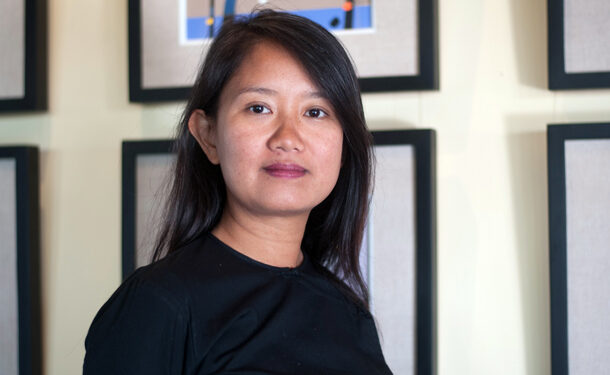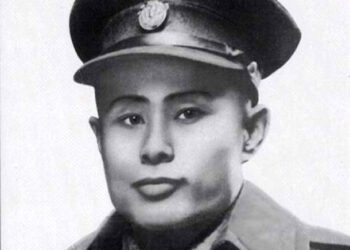Daw Yin Myo Su is no Johnny-come-lately to the hospitality industry. As a young girl she performed traditional dances to entertain guests at an inn run by her family in Nyaung Shwe, a town near Inle Lake, and today she is managing director of two resorts: Inle Princess Resort, also near the Shan State lake, as well as Mrauk Oo Princess Resort in Rakhine State.
But Daw Yin Myo Su, also known as Misuu, is a woman of many interests, with a reputation near the lake for founding the Inthar Heritage House, a center dedicated to preserving the ethnic Intha traditions of her ancestors. She is also the winner of the 2013 Goldman Sachs & Fortune Global Women Leaders Award. In a conversation with Irrawaddy senior reporter Kyaw Phyo Tha, she discussed environmental conservation and women’s empowerment, and explained why she believes development should not come at the cost of local culture.
Question: What’s your vision for Inle Lake?
Answer: I belong to the Intha tribe and had many sweet childhood memories at Inle Lake, so I’m very proud to come from this simple and warm Inle community. My vision is not that complicated. I believe I inherited the lake from my ancestors, so it’s my responsibility to hand it over to the next generation just as I received it, but with some improvements, like in health and education. I understand nothing lasts forever but I don’t want to give it up without a try.
Q: Now tourists are rushing in. Will this help improve the lake and the lives of local people?
A: So far it has generally had a positive impact on Inle people indirectly, by creating jobs as local guides, boat drivers and souvenir sellers. But there are no more than a dozen locally owned hotels and very few successful local entrepreneurs. With tourism booming, I think locals should see a good share of the benefit. If not, in the long term they will feel alienated.
Q: Do you mean you oppose foreign investment or foreign-run hotels?
A: No, I don’t. You can even learn from them. Instead of seeing them as rivals, we have to compete with them by offering quality services to guests. At the same time, if they want to sustain their businesses, outside investors should take care of the local community. If Inle is no longer attractive to tourists, no one will come—no matter how much you invested. Of course we all need to make money, but you have to contribute to the community. Foreign investors are welcome. Show us a smart way to invest, teach us a smart way to work, be our model. Inspire us. Help us this way, and we will help you. It’s a win-win situation.
Q: How can local businesses stay competitive?
A: Being a local is part of the brand—it’s valuable. Being a local is attractive for tourists who want to visit our country because they really want to understand who we are or how we live. They don’t come here to see something they can see in other countries. For them, something local is authentic. You have to be creative with your current assets to ensure the comfort of your clients. Plus you need to work as hard as foreigners. Don’t be lazy, especially at this moment when everyone is interested in Myanmar.
Q: What are you doing now?
A: I’m working on the Inle Heritage Foundation to preserve the tangible and intangible heritage of Inle and its surroundings. I started with breeding Burmese cats at the Inthar Heritage House, and I also have an aquarium that conserves the endemic fish species of Inle Lake. Since last year we have run a hospitality vocational training center at the Inthar Heritage House for local young people, to help the community diversify their livelihoods and get a bigger share in the development of this industry. We are also running pilot projects on good agricultural practices and waste management for the lake.
Q: Why did you go into the hospitality industry?
A: Hospitality is in every Myanmar person’s DNA. It is taken for granted in Shan State that even a stranger will have a cup of green tea when he drops by at a farmer’s home. I feel great when I make someone happy. I want to help people. If guests tell me during checkout that they were satisfied with our service, I’m on cloud nine! That kind of happiness is beyond expression. Plus I get money from them. Don’t you think it’s good?
This article was first published in the March 2014 print issue of The Irrawaddy magazine.

















